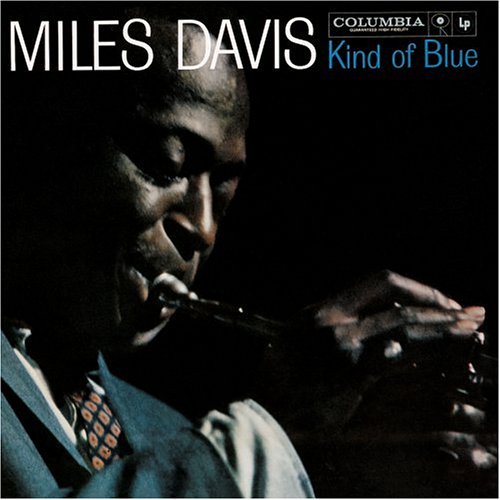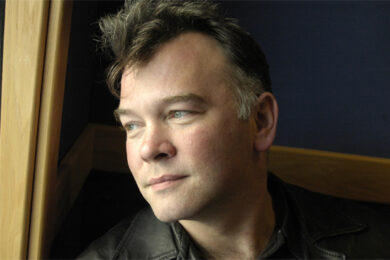8. Miles DavisKind Of Blue

I really love jazz, but it’s really hard to find out about jazz because 90% of what’s called jazz is awful. Jazz Café doesn’t really have any jazz on, Jazz FM doesn’t really play any jazz. I was looking at a house around here a couple of years ago. Went in, it was one of these white modern houses like from the 90s – it was one of these old houses that had been ruined by having all the features taken out of it and just made to look like a Bond villain’s den. And the guy’s got black and white sepia photos of Mile Davis and John Coltrane, but there’s no records in the house or CDs, so what is he saying? ‘Oh look, jazz. I wouldn’t listen to it, but look at it.’It’s become an iconic meaningless thing.
Anyway, when I was about 14 or 15 I accidentally heard all 20 minutes of ‘The Freedom Suite’ by Sonny Rollins on the radio, and it was amazing. I thought, ‘Is that jazz? It’s fantastic.’I went out and bought the album, and loved it. Then I tried to buy more jazz, but I accidentally bought things like George Benson or 70s Herbie Hancock funk albums, so I thought, ‘Jazz is awful, I didn’t like it anyway.’ Then in the early 90s I came back to it backwards because Sonic Youth and people like that came over here playing gigs with people from the free improv circuit.
Then in about 93/94 I was working on a cabaret show with Richard Thomas, who went on to write Jerry Springer The Opera. And he insisted that Miles Davis’ Kind of Blue was the most beautiful piece of art ever created, that even people on alien planets would respond to it, even if they had no understanding of the scales of the planet earth. We used to use it as intro music for this show we were doing and it seemed to have an incredible narcotic effect on the room. It totally transformed it. Over 30 nights in Edinburgh of hearing that album every night, I totally got it. I absolutely love it.
Now this is at risk of being pretentious, but I think the dialogue between Coltrane and Miles Davis on Kind Of Blue can tell you lots about how stand-up can work. Coltrane fills up all the space with loads and loads of noise and shapes – that’s one way of doing comedy, to keep up filling up the room. Then as soon as Miles Davis’ solo starts, it’s just one tiny little toot, then there’s 20 seconds of nothing, then another little tiny bit. It can be about how many notes, and Coltrane’s use of many notes is fantastic, but also it’s about what do you do with a tiny thing that you try to use. And Mark E. Smith’s the same with that, using a single phrase or single sound. I think that Miles Davis’trumpet phrasing and Mark E. Smith’s vocal is really similar, in an odd way that it can have all this stuff around it, but it just goes through it. And with stand-up we’re just trying to get down to like a one word catch phrase. But to make the catchphrase be the thing that is waited for is science, in that loads of what gets you is where it stops. It’s not what’s happening, it’s what’s not happening.
Coltrane does it on, say, ‘My Favourite Things’. He starts by playing the lick of ‘My Favourite Things’which we all know from The Sound Of Music, then he spends 20 minutes not playing anything that sounds at all like it (although presumably if you’re a musician you know it has a harmonic relation to it). What you know as a listener is that at some point it must come back to My Favourite Things; it’s about the delay and your waiting for it to come back. And that to me is absolutely the key to a lot of stand-up. People say to me, ‘Oh it was all about the same thing.’But I established it was going to be about a particular thing and I appeared not to be dealing with that thing, but you’ll find out half an hour later that actually I was. And that all along that was the theme underlying it. It’s about: can you put the pieces into place without anyone realising?
There’s nothing worse than comedians saying they’re like freestyle jazz musicians, because usually what they mean is that they had a photograph taken of themselves smoking, but actually if you think about what it means, which is improvising round a theme, then that’s what I’m trying to get to. I’m writing some good little jokes, then being able to blow them apart and get back to them, and that’s what makes comedy like jazz.


